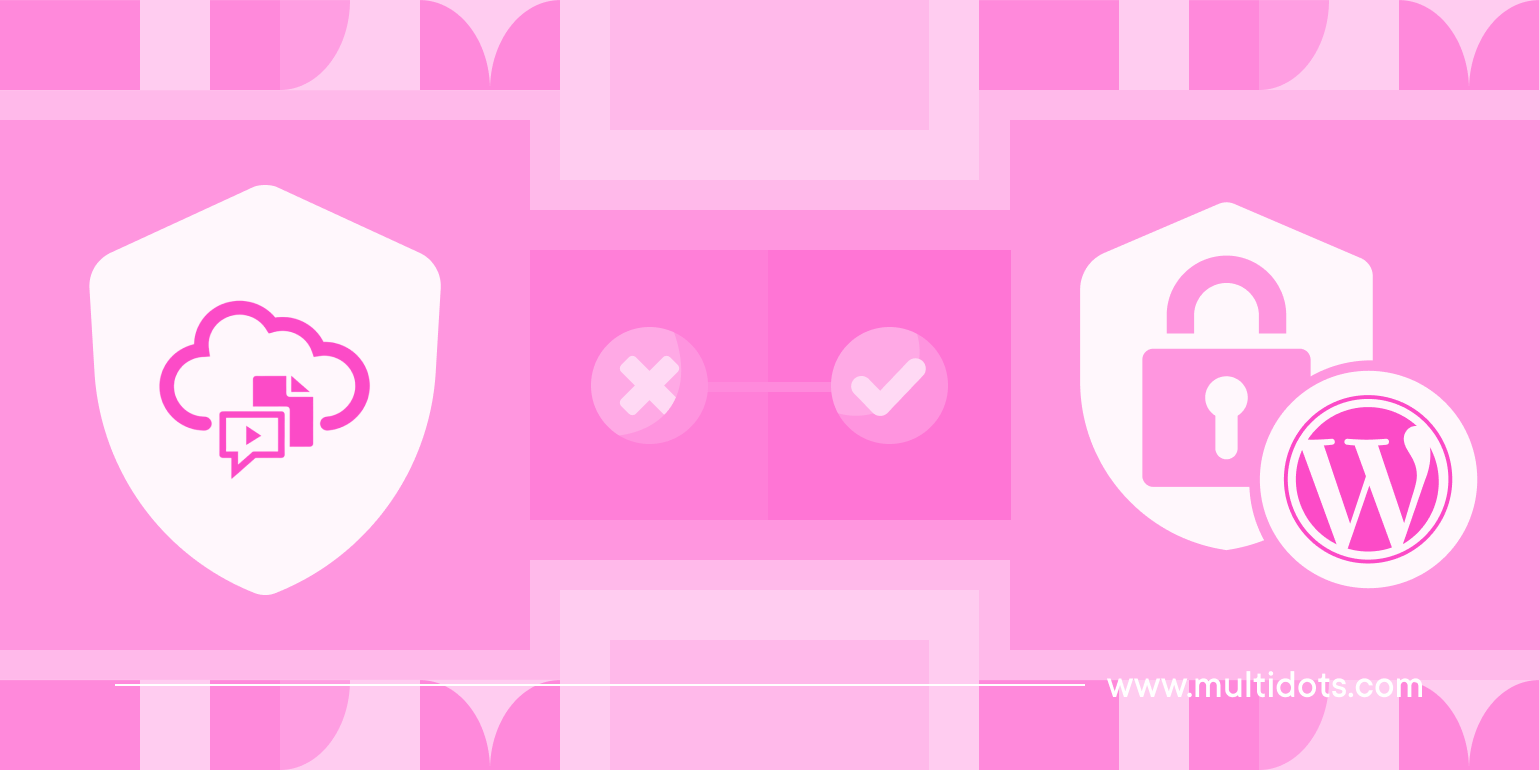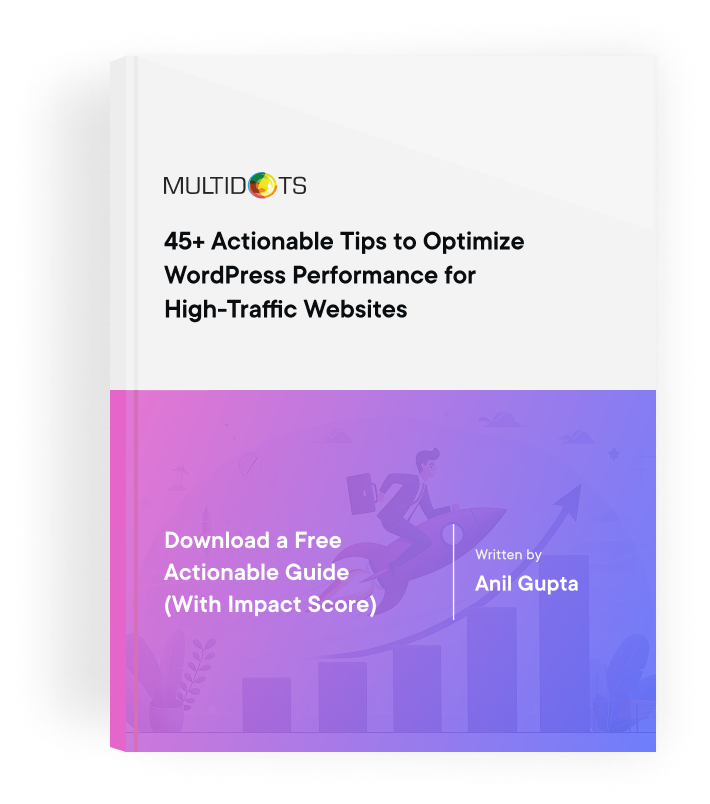Security Risks in Oracle Content Management and Why WordPress Is a Better Option in 2025
Why WordPress is safer than Oracle CMS in 2025.

Table of Contents
As we approach 2025, cybersecurity becomes an increasingly important concern for enterprises globally.
Statistics suggest that in Q3 2024, an average of 1,876 cyber attacks per organization was recorded, which is a 75% increase compared to the same period in 2023 and a 15% rise from Q2 2024.
Now, Oracle Content Management (OCM) is a fairly secure proprietary content management platform. However, with Oracle announcing its end-of-life, with its content management cloud services ceasing operation on December 31, 2025, it’s crucial for you to start thinking about the security of your website if it’s still running on OCM.
Without future updates or support from Oracle, your site becomes vulnerable to serious security risks. So, it’s time to migrate to a reliable enterprise-grade CMS. This is where WordPress steps in as a strong alternative. Known for its regular updates and active community, WordPress ensures that your site stays secure and adapts to new challenges.
If you’re looking for a secure and flexible CMS, WordPress might just be the right choice for you. In this post, let’s look at the security risks associated with OCM and the clear advantages of migrating to WordPress for your enterprise.
Security Challenges with Oracle Content Management
As Oracle Content Management approaches its end-of-service in December 2025, you need to be aware of several security challenges that could impact your organization. Once Oracle stops releasing updates and patches, your CMS will become open to new security threats.
Here are some of the critical security issues that could affect your website:
- Vulnerability to Attacks: Without regular updates from Oracle, your CMS will be exposed to various security threats, such as SQL injections and DDoS attacks. These vulnerabilities can compromise your data and disrupt your operations.
- Third-Party Vendor Risks: If you rely on third-party vendors to integrate with Oracle CMS, the end of Oracle support could affect these relationships. These vendors may not continue supporting products compatible with Oracle CMS, which could lead to further security vulnerabilities.
- Legacy System Challenges: Managing security in a legacy system like Oracle CMS can become increasingly complex without support. As the system ages, it becomes more difficult to ensure that all aspects of your digital environment are secure. This can lead to potential data breaches and non-compliance with new security regulations.
These risks underline the importance of moving to a CMS that provides ongoing support and updates to help protect your business against future threats. WordPress, in comparison, with its strong focus on security and an active support community, presents a solid option for enhancing your website's defenses post-2024.
Benefits of Migrating to WordPress
WordPress is an open-source platform. What’s more, it powers over 43.5% of all websites on the internet, making it a frequent target for hackers.
While this does make it more vulnerable to cyber attacks, architecture-wise, it is inherently a secure CMS and has plenty of tricks up its sleeves to ensure an enterprise website stays airtight.
Here’s how migrating your CMS from Oracle to WordPress can enhance your website's security posture:
- Continuous Updates and Community Support: WordPress has a good reputation for frequent updates that address security vulnerabilities and ensure the platform stays up to date with the latest security practices. The vibrant WordPress community actively contributes to its security, providing plugins, patches, and advice to help secure your site.
- Modern Security Architecture: WordPress supports modern security standards and practices, which include everything from simple measures like strong password enforcement and two-factor authentication to complex security arrangements like custom user roles and permissions. Moreover, WordPress’s architecture allows for the use of advanced security plugins that fortify your site against hacks and data breaches.
- Robust Plugin Ecosystem: As just mentioned, WordPress boasts a comprehensive repository of security plugins that can be easily integrated to enhance your website's defenses. These plugins help automate critical security tasks such as scans for vulnerabilities, firewall setups, and regular backups.
- Scalability and Flexibility: WordPress’s flexibility allows it to accommodate a range of security measures tailored to the specific needs of your business. Whether you are a media conglomerate or an eCommerce giant, WordPress can scale to meet your security requirements without compromising on performance.
Furthermore, managed hosting providers like WordPress VIP offer enterprise-grade security with FedRAMP authorization, which includes stringent code reviews, automatic security updates, and expert support for large-scale operations.
All in all, migrating to WordPress not only mitigates the security risks associated with the end-of-service for Oracle Content Management but also positions your enterprise to be more adaptable and resilient against future threats.
Migration Path from Oracle to WordPress
If you’re considering WordPress as your next CMS, then here’s an overview of the steps involved in migrating from OCM to WordPress to ensure a secure and efficient transition:
- Initial Planning: Start by defining the scope and objectives of your migration. Identify the content, features, and functionalities that need to be moved from Oracle to WordPress. This step involves a thorough assessment of your current CMS to understand the structure and dependencies of your data.
- Choosing the Right Tools and Services: Utilize migration tools and services that can help streamline the process. For instance, Multidots specializes in WordPress migrations and can offer customized solutions to ensure data integrity and security during the transfer. There are various plugins too that help automate some processes to migrate content, users, and configuration settings directly to WordPress.
- Data Migration: Execute the migration process, which includes transferring all necessary data — posts, pages, media files, user profiles, and more. During this phase, it's crucial to maintain data integrity and ensure that all content is accurately reflected in your new WordPress environment.
- Setting Up Redirects: Implement 301 redirects for your old URLs to the new WordPress URLs. This step is vital for preserving your SEO rankings and ensuring that existing users and search engines can find your new pages without hitting dead ends.
- Testing and Validation: Before going live, thoroughly test your new WordPress site in a staging environment. Check for functionality, broken links, and compatibility issues. Ensure that the site’s performance meets your standards and that security configurations are properly set up.
- Going Live: Once testing is complete and all issues are resolved, you can go live with your new WordPress site. Monitor the performance and user feedback closely to address any post-launch issues promptly.
- Ongoing Support and Maintenance: After migration, keep your WordPress site updated with the latest software updates and security patches. Regularly review your site's performance and security to adapt to new challenges and threats.
By following these steps, you can ensure a smooth and secure migration from Oracle Content Management to WordPress. Leveraging the expertise of WordPress development agencies like Multidots can help you minimize downtime and maintain operational continuity.
Wrapping Up
Continuing to use Oracle Content Management beyond its end-of-service in December 2025 poses significant security risks. These risks threaten the integrity and confidentiality of your data and could also expose your business to compliance violations. The lack of updates and support from Oracle will leave your system defenseless against emerging security vulnerabilities.
On the other hand, migrating to WordPress offers a pathway to a more secure, flexible, and well-supported platform. WordPress continuously evolves through regular updates that enhance its security measures, ensuring that your site remains covered against potential threats.
Migrate from OCM to WordPress with the help of Multidots. Our team ensures a zero-downtime, seamless migration process. Don't wait until it's too late—contact Multidots today to start your secure transition to a tried-and-true enterprise-ready CMS.
FAQs
-
WordPress is known for its robust security measures, but like any platform, it is not immune to security threats. The security of a WordPress site somewhat depends on user practices, such as keeping the software and plugins up-to-date, using strong passwords, and employing security plugins. Oracle CMS, being an enterprise-level solution, typically has built-in, comprehensive security features suitable for larger organizations with sensitive data. However, WordPress’s extensive community and constant updates contribute to its ability to respond quickly to security vulnerabilities.
-
WordPress handles security through a combination of core software security features, regular updates, and plugins that enhance its defenses. The WordPress core team frequently releases updates that patch known vulnerabilities and improve security features. Additionally, there are numerous security plugins available that offer services such as firewalls, malware scanning, and brute force attack prevention.
-
Oracle implements comprehensive security measures that include data encryption, user authentication, and role-based access control across its platforms. Oracle’s approach to security is multi-layered, aiming to protect data, applications, and infrastructure from external threats and unauthorized access.
-
Oracle offers several cloud security solutions, but three notable ones include Oracle Identity Cloud Service (for identity management), Oracle Cloud Infrastructure Security (providing tools to secure cloud applications and infrastructure), and Oracle Database Security (which includes features like encryption, access control, and data masking).
-
Some of the cited weaknesses in Oracle’s systems include complex configuration and management that may lead to potential misconfigurations, as well as the high costs associated with licensing and maintaining Oracle products. Additionally, being a widely used system, Oracle is a frequent target for cyber attacks, making rigorous security practices essential.
Feel free to schedule a quick call with our migration expert.
Contact Us
